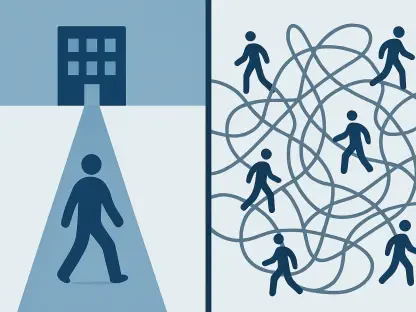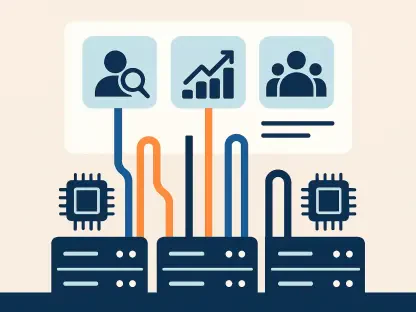In an era where digital innovation is reshaping the fabric of governance worldwide, Oman has taken a significant step forward with the launch of a groundbreaking national initiative aimed at revolutionizing its public sector. Spearheaded by the Ministry of Transport, Communications, and Information Technology (MTCIT) in collaboration with esteemed institutions like the Royal Academy of Administration and the University of Technology and Applied Sciences, this ambitious program seeks to empower government officials with the skills needed to navigate the complexities of a digital age. Known as Irtiqa, the initiative is more than just a training scheme; it represents a strategic commitment to fostering a new breed of transformation leaders capable of enhancing service delivery and elevating the digital experience for citizens. Aligned with the broader goals of Oman Vision 2040, which charts a path toward a sustainable, knowledge-based economy, Irtiqa underscores the nation’s determination to position itself as a leader in digital advancement through focused investment in human capital and technological progress.
Empowering Government Through Digital Skills
A cornerstone of this transformative journey lies in recognizing human capital as the bedrock of digital progress within Oman’s government sector. The Irtiqa program, launched with the intent to upskill public officials across 57 government entities in its initial phase, places a strong emphasis on blending technical know-how with strategic leadership. As articulated by H.E. Dr. Ali bin Amer al Shidhani, Undersecretary for Communications and Information Technology at MTCIT, the initiative is pioneering in its approach to building a robust framework for digital capabilities. By equipping officials with the tools to drive innovation, the program aims to ensure that government operations keep pace with rapid global technological advancements. Beyond mere technical training, it fosters a culture of continuous learning, encouraging participants to think strategically about how digital solutions can solve real-world challenges in public administration. This focus on comprehensive skill development is seen as vital for creating a resilient workforce ready to tackle the demands of a digitally integrated future.
Further deepening this vision, the program seeks to redefine the role of public officials as catalysts for change within their respective domains. The training modules are meticulously designed to bridge the gap between theoretical knowledge and practical application, ensuring that participants can implement digital strategies effectively. Dr. Shidhani has emphasized that digital knowledge represents a modern form of capital, indispensable for long-term economic growth. By instilling this mindset, Irtiqa not only enhances individual competencies but also contributes to a broader cultural shift within government institutions, where innovation becomes a shared responsibility. This holistic approach is expected to improve efficiency in service delivery, ultimately benefiting citizens through faster, more accessible, and user-friendly digital interactions with public entities. The initiative’s commitment to nurturing talent reflects a forward-thinking strategy that prioritizes people as much as technology in the quest for sustainable national development.
Building a Leadership Ecosystem for Transformation
Another pivotal aspect of Irtiqa is its ambition to create a cohesive and agile leadership ecosystem capable of addressing global challenges while accelerating national progress. Dr. Ali Qasim Jawad al Lawati, Chairman of the Royal Academy for Administration, has highlighted the program’s broader vision of cultivating leaders who can navigate the intricacies of digital transformation with confidence and foresight. This ecosystem is not merely about individual growth but about fostering collaboration across government bodies to ensure a unified approach to modernization. By focusing on strategic thinking alongside technical expertise, the initiative prepares officials to anticipate future trends and adapt to evolving needs. Such an environment is essential for sustaining momentum in digital initiatives, as it encourages a shared commitment to excellence and innovation among diverse stakeholders within the public sector.
Expanding on this theme, the program’s design reflects a deep understanding of the interconnected nature of modern governance challenges. Events like the launch of Irtiqa have served as platforms for dialogue, reinforcing the indispensable role of skilled individuals in driving systemic change. Discussions during these sessions have centered on the idea that human potential is at the core of any meaningful digital shift, a perspective that resonates across all levels of implementation. By prioritizing leadership development, the initiative ensures that government entities are not just reacting to technological advancements but proactively shaping them to align with national priorities. This proactive stance is particularly critical in a global landscape where digital competitiveness often determines a nation’s standing, making Irtiqa a timely and strategic response to the demands of an increasingly interconnected world.
Measuring Progress in Digital Initiatives
The tangible impact of Oman’s digital transformation efforts is evident in the remarkable strides made by the National Program for Government Digital Transformation, known as Tahawul. Current data reveals a performance rate of 80% for the program, with government institutions achieving an average compliance rate of 81% in meeting digital goals. Furthermore, the digitization of priority services has reached 74%, while an impressive 96% of targeted government services have streamlined their procedures. This has led to over 11 million digital transactions being processed in just the first half of the current year, showcasing a clear trend toward greater efficiency and accessibility in public services. These figures not only highlight the success of ongoing efforts but also demonstrate how initiatives like Irtiqa are laying the groundwork for sustained progress by enhancing the capabilities of those at the helm of these changes.
Beyond statistics, the broader implications of these achievements signal a shift in how government services are perceived and delivered in Oman. The high volume of digital transactions reflects growing public trust in digital platforms, a direct outcome of improved systems and user experiences driven by trained professionals. This success is intricately linked to the capacity-building focus of Irtiqa, which ensures that officials are well-equipped to implement and maintain these digital solutions effectively. As compliance rates continue to climb, there is a clear indication that the strategic alignment between training programs and national objectives is yielding measurable results. This synergy between human development and technological advancement positions Oman as a formidable player in the global digital arena, with the potential to set benchmarks for other nations embarking on similar transformation journeys.
Reflecting on a Digital Legacy
Looking back, the launch of the Irtiqa program marked a defining moment in Oman’s journey toward a digitally empowered government sector. It prioritized the enhancement of digital competencies and leadership skills, aiming to improve public service delivery as a means to support economic growth and elevate quality of life. The alignment with national objectives under Oman Vision 2040, combined with the evident success of related efforts like Tahawul, underscored a steadfast dedication to progress. Moving forward, the focus should remain on scaling these initiatives to encompass more government entities while continuously updating training to reflect emerging technologies. Exploring partnerships with international tech leaders could further enrich the program, ensuring that Oman’s public sector remains at the forefront of innovation. This strategic investment in both people and technology promises to solidify a legacy of digital excellence for future generations.









